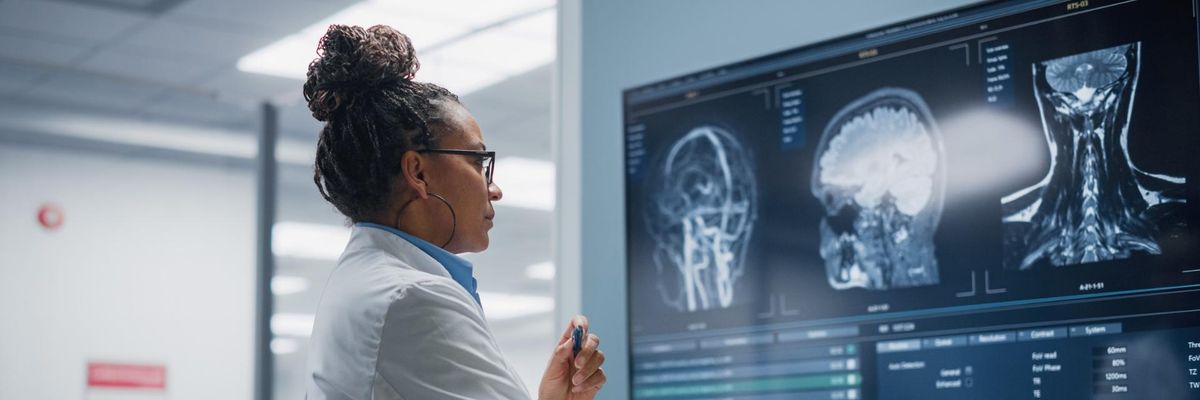
"Robotization" of health sector institutions to increase competitiveness
Ricoh Latin America announces the availability of the Robotic Process Automation (RPA) solution for healthcare companies. This technology is based on the implementation of software robots to streamline routine processes such as clinical and historical patient records and provider record processing to provide optimized patient care.
Currently, 36% of healthcare processes have the potential to be automated.
Ricoh Latin America announces the availability of the Robotic Process Automation (RPA) solution for healthcare companies. This technology is based on the implementation of software robots to streamline routine processes such as clinical and historical patient records and provider record processing to provide optimized patient care.
RPA technology represents an opportunity for intelligent automation of healthcare systems to lead the shift towards digital transformation and thus benefit from the elimination of waste and efficiency in the patient journey.
Jesús Santiago, Vice President of Office Solutions at Ricoh Latin America explains: "Robotic Process Automation is a service focused on improving the efficiency of our clients' business processes through robotics techniques and development-implementation of technological solutions. The function is to transfer the most repetitive and monotonous tasks of the processes carried out within the company to robots via software without compromising the existing IT architecture. This improves the patient experience, reducing repetition and allowing staff to focus on more valuable activities".
According to industry professionals, there are approximately 60% of manual tasks that can be automated. What is Ricoh Latin America's RPA solutions?
Patient history and registry: The digitization of patient records links their past with current care (already recorded in digital format), which favors real-time consultation by different specialists and allows immediate availability of the history. This improves access to and use of health care data, providing a 360º view of patient information.
Telemedicine: An important element for clinics, sanatoriums, and/or hospitals is the training of professionals. For this, it is necessary to integrate tools and software that ensure good transmission quality combined with ease of use so that the focus of the professional is the content; from teaching to collaboration between experts and/or learning.
Purchasing management: Having the information centralized in a document manager helps in the management of purchases, contracts, and suppliers. Now, administrative employees can automate the procedures to optimize the management of the invoice approval cycle with suppliers, as well as post invoices in a single process, saving time and effort. An automated process that controls the different steps within the process, what minimum documents are required (such as the quotation,) and the congruence between purchase order notes and invoices, can save response times for the business, as well as unintentional human errors. These solutions are modular and can be adapted as the business requires.
Registration request: From a web or mobile application, the patient's registration process begins. This electronic form collects the patient's main data, directly in digital format, and is then included in the patient's medical history. This starts a "paperless" process, feeding the document management. The patient's data can be analyzed and, under certain criteria, can be automatically derived to some kind of approval or alert.
HR Management: There are still institutions that keep the files of administrative employees and professionals in folders with papers. These papers can be made available within a document manager, protecting their visualization only to authorized Human Resources personnel, and updating the documentation as it happens (e.g. medical certificate due to illness, birth of children, vacation request). This solution not only centralizes all the information in a place accessible 24/7 but also generates a safekeeping of this information for years.
Digital Signage: The digital signage system can be integrated with two "necessary" worlds in a hospital environment: the need to show the patient's and/or the box's shift assignment, and to communicate messages corresponding to primary care preventive campaigns, institutional communication, and/or advertising of a partner. The main advantage of this system is the centralized management from a control panel of each of the screens and at the same time the easy individualization.
RICOH Smart Doctor: Physicians can now use a cognitive platform, built to simplify the day-to-day life of doctors. The hospital or institution can receive information in natural language to analyze and code diseases and suggest diagnoses. Doctors can improve the quality of the clinical record, simplify the process of information retrieval, and perform statistical analysis, this represents medical knowledge by making the processes of calculating and analyzing data efficient, through a simple mobile application.
"RPA technology represents an opportunity for intelligent automation of healthcare systems, to lead the shift towards digital transformation, and thus gain benefits the elimination of waste and efficiency in the patient journey. This technology also eliminates mistakes made due to fatigue or stress, minimizing rework, and allowing people to focus on higher value-added tasks. In addition, it is not an invasive technology; it can interact with any system that is already in use, so it does not represent a problem or an additional burden for IT people," emphasizes Jesús Santiago.
In conclusion, in this digital era, RPA technology is the answer to increase efficiency and add value to the patient experience through the application of robotic process automation.




